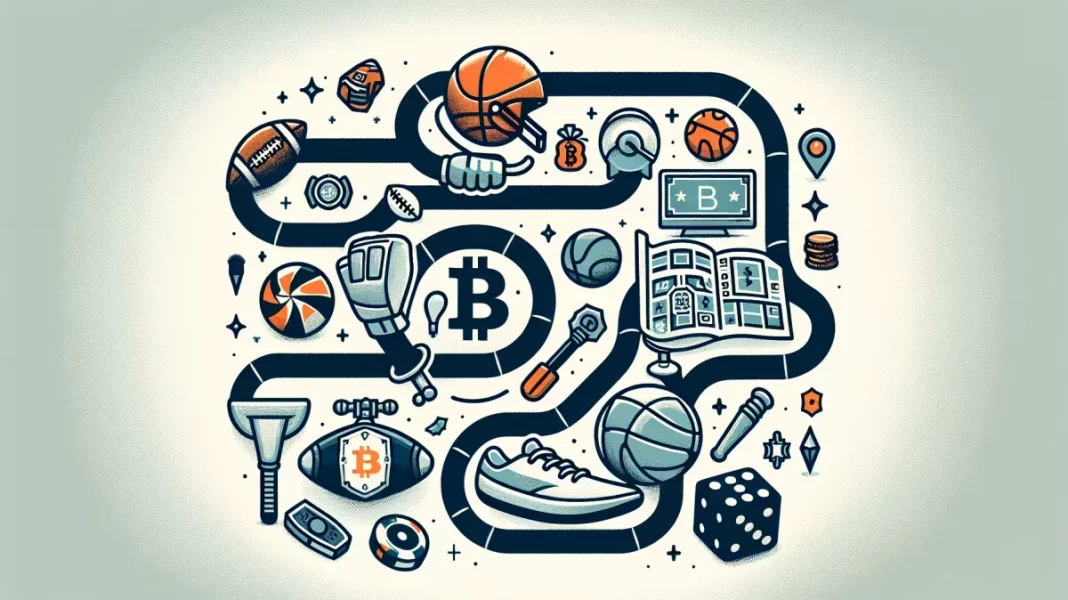In the evolving landscape of online gaming, Bitcoin has emerged as a power player in currency platforms, offering opportunities that extend beyond simple transactions. The recent trend making waves is the integration of Bitcoin payment systems in cross-platform gaming – a development that could significantly alter the online gaming and gambling dynamics.
Cross-platform play, or “cross-play,” refers to the ability of players using different gaming systems to play with each other simultaneously. It is a feature that, for years, gamers have demanded, and developers are beginning to implement more broadly. The intersection of cross-play and Bitcoin presents an exciting fusion of technological innovation and accessibility, leading to both opportunities and challenges within the industry.
The appeal of Bitcoin game integration lies in the decentralized, secure nature of cryptocurrency transactions. Utilizing blockchain technology, Bitcoin provides a level of security and anonymity that is unparalleled in traditional online payment methods. Coupled with the ability to seamlessly play across multiple platforms—be it PC, console, or mobile—Bitcoin integration caters to a user base seeking both flexibility and privacy.
From the perspective of the gaming industry, this is a significant leap forward. Game developers can now tap into a broader market by combining cross-platform capabilities with the allure of cryptocurrency transactions. Players from different devices and geographical locations have the autonomy to join a unified gaming ecosystem, breaking down barriers that once segmented the community.
Another groundbreaking aspect of Bitcoin game integration is the potential for reduced transaction fees and faster payment processing. Traditional in-game purchases often subject players to additional costs and can face delays due to banking processes or country-specific regulations. Bitcoin, however, operates globally and without the need for intermediaries, streamlining the purchase of in-game assets, upgrades, and other digital goods.
Bitcoin’s integration into gaming also heralds a new era of fairness and transparency. The blockchain ledger provides an immutable record of transactions, building trust within the gaming community. This means that any in-game currency exchanges, bet outcomes, or asset transfers can be verified by participants, thereby reducing instances of cheating or fraud.
The advent of cross-platform Bitcoin gaming presents a particularly promising avenue for bitcoingambling.org and similar platforms. As more gamers seek out Bitcoin-friendly environments for their entertainment, these platforms are poised to become hotspots for both casual play and competitive gambling. The intersectionality of gaming and gambling, powered by Bitcoin, could incite a sea change in the way players engage with online games and with each other.
However, the rise of Bitcoin game integration is not without its challenges. Regulatory hurdles continue to loom large, with varying degrees of acceptance for cryptocurrency and online gambling around the world. Game developers and platform operators must navigate these choppy waters carefully, ensuring compliance with local laws while maintaining the integrity of the user’s experience.
Moreover, while Bitcoin does provide anonymity, this aspect raises issues concerning responsible gaming. Gambling platforms must find a balance between protecting user privacy and ensuring that their services are not used for illicit activities. Implementing robust know-your-customer (KYC) and anti-money laundering (AML) protocols could be pivotal in establishing and maintaining responsible gaming practices.
The education of players about cryptocurrency, wallets, and secure transactions will also play a crucial role in fostering a safe gaming environment. For many, the world of Bitcoin is a complex and daunting frontier. Easy-to-understand resources and user-friendly interfaces will be essential in bridging the gap between traditional players and the next generation of Bitcoin gamers.
Finally, the issue of scalability must be addressed. As Bitcoin game integration becomes more prevalent, the network will need to handle an increasing volume of transactions without sacrificing speed or security. This calls for a concerted effort from blockchain developers to ensure that the infrastructure can sustain the growth of cross-platform Bitcoin gaming.
In conclusion, the integration of Bitcoin in cross-platform play marks a big step forward for the gaming and gambling industries. It presents a future in which players can enjoy a seamless, secure, and inclusive gaming experience. For platforms like bitcoingambling.org, this is an opportunity to lead the charge, pioneering innovative services that cater to a growing demographic of tech-savvy gamers and gamblers. As the landscape continues to shift, the story of Bitcoin game integration is far from over—instead, it’s just beginning to unfold a new chapter in the digital age of gaming.



